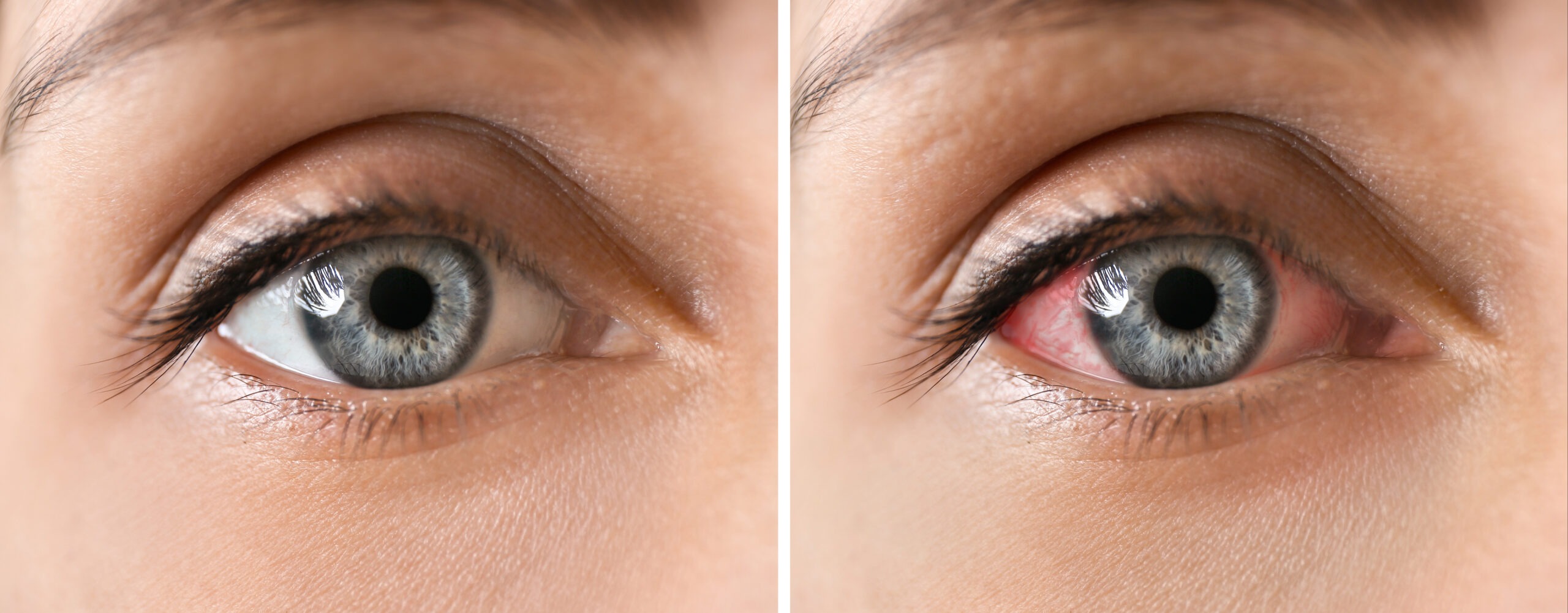What is uveitis?
Uveitis is a group of inflammatory conditions that affect the uvea, the middle layer of the eye. It can also impact adjacent eye structures like the retina, vitreous humor, and optic nerve. Uveitis can cause discomfort and may lead to vision problems if left untreated.

Types of uveitis
Uveitis is classified based on the part of the eye it affects:
- Anterior Uveitis: Inflammation in the front of the eye, involving the iris and ciliary body.
- Intermediate Uveitis: Inflammation in the middle part of the eye, involving the vitreous humor.
- Posterior Uveitis: Inflammation in the back of the eye, impacting the retina and choroid.
- Panuveitis: Inflammation affecting all parts of the uvea.
What are the symptoms of uveitis?
Uveitis symptoms can vary depending on the type and severity of inflammation. Common symptoms include:
- Eye Redness: The white part of the eye may appear red or bloodshot.
- Eye Pain: Aching, discomfort, or sensitivity to light.
- Blurred Vision: Vision may become hazy or blurry.
- Floaters: Spots or specks in your vision.
- Eye Discharge: Watery or pus-like discharge from the eye.
How is uveitis diagnosed?
An eye care professional will diagnose uveitis through:
- Comprehensive Eye Exam: This includes examining the eye's structures and assessing visual acuity.
- Slit Lamp Examination: A high-intensity light is used to examine the front of the eye and detect inflammation.
- Dilated Fundus Exam: Dilating the pupils to examine the back of the eye and the optic nerve.
Managing uveitis
Managing uveitis involves treating the inflammation and its underlying cause:
- Anti-Inflammatory Medications: Steroid eye drops or oral steroids can help control inflammation.
- Immunosuppressive Medications: For severe cases, medications that suppress the immune response may be prescribed.
- Pain Relief: Over-the-counter pain relievers can help manage discomfort.
- Underlying Condition Treatment: Treating any underlying condition contributing to uveitis is essential.
Uveitis requires ongoing monitoring and management. Regular follow-up appointments are crucial to track progress and adjust treatment as needed.
Preventing complications
Early intervention is key to preventing complications and preserving your vision. If you experience any symptoms of uveitis, seek prompt medical attention from an eye care professional.
Remember, uveitis is a treatable condition, and timely care can lead to improved outcomes. If you suspect you have uveitis or are experiencing changes in your vision, consult an eye care professional for proper evaluation and personalized guidance.

